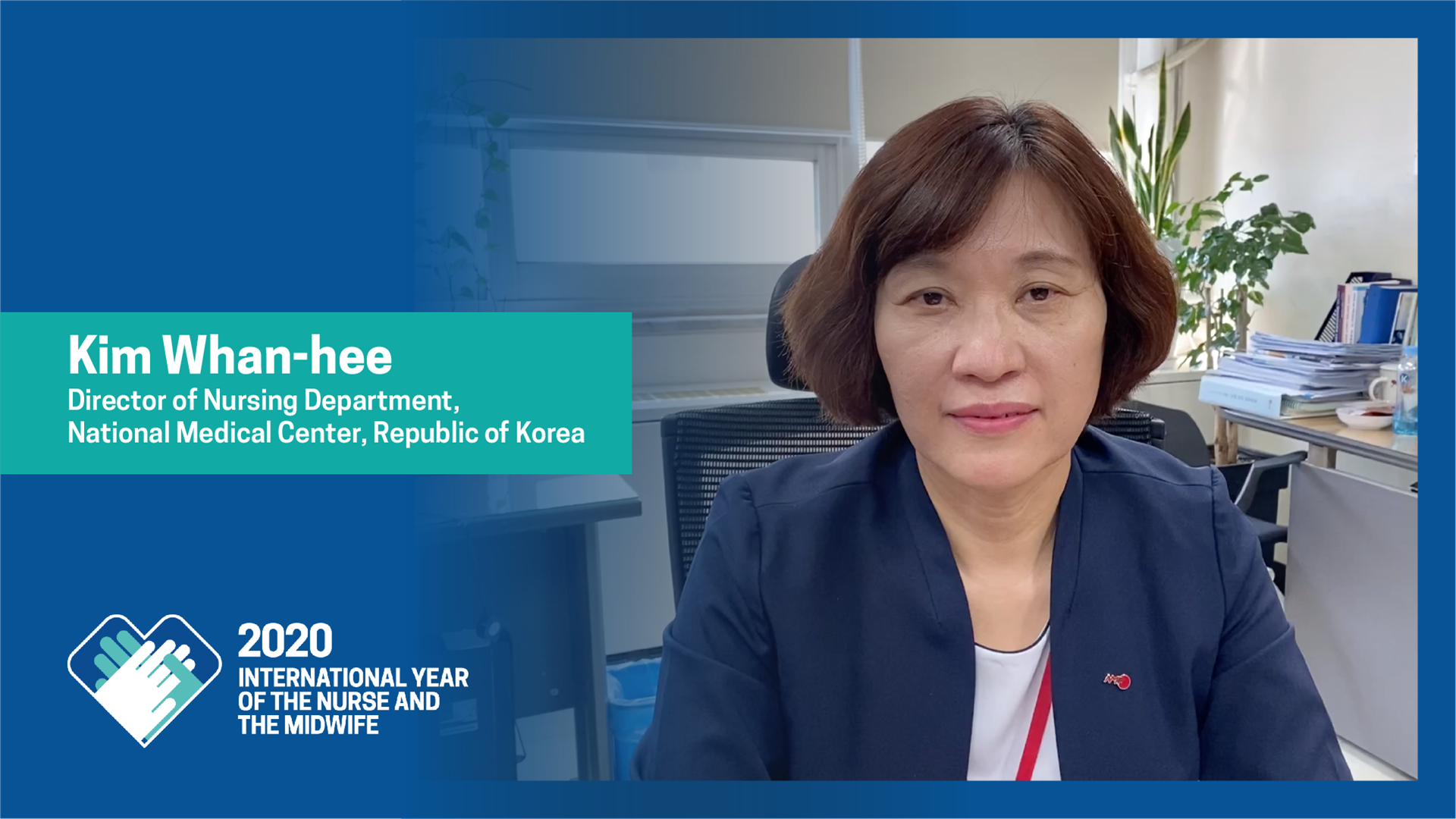Republic of Korea: Lessons learned from MERS
Kim Whan-hee, Director of Nursing Department at the National Medical Center in the Republic of Korea, said that the country’s experience in containing MERS in 2015--and the lessons learned then--helped to ensure a quick and comprehensive response to the COVID-19 pandemic.
“Following the MERS outbreak, our government passed the Medical Service Act, which authorized hospitals to install quarantine units with negative pressure rooms. This later contributed to the effective containment of COVID,” Kim said.
“We first got word of the COVID outbreak during the New Year holiday,” she recalled. “While the hospital set up its emergency headquarters, the nursing department quickly established our own situation room to facilitate direct patient care.”
The hospital also set up a human resources team to manage nurses and assistants, a supply and distribution unit, and a problem-solving team for clinical issues. Yet another unit provided on-site education to frontline health workers, including training on how to wear and dispose of personal protective equipment (PPEs) and how to manage isolation units.
“As a government-designated hospital, we had been prepared to respond immediately to outbreaks, coping with high-risk patients and providing guidance on infection management to other hospitals,” Kim said. For future emergencies, she advises establishing a hospital specializing in infectious diseases, that would provide regular training nationwide.
She pointed out that continuous education for nurses in containing disease outbreaks is key. “When well prepared, nurses carry out their responsibilities more effectively, with a sense of duty and commitment to their patients.”
“The major principle is to block the source of infection. Nurses in the frontline should be provided with sufficient supplies of masks, PPEs and hoods to keep them from being infected,” she added. “Otherwise the system set up to contain the disease might collapse.”
It is essential for nurses to remain in good condition, Kim said. “Many nurses remain on duty even when they feel their health declining, because they worry about passing on to colleagues the burden of care for their assigned patients. But in a pandemic, it is better to immediately self-isolate. This produces better results.”
Psychological assistance is also vital for nurses who have been in direct contact with infected patients, Kim said. After the disease has been contained, nurses should be allowed time to recuperate before their next assignment.
“The dedication of the nursing staff was inspiring,” she said. “Among them were the nurses in PPEs in the ICU, the nurses who volunteered to serve on board flights to pick up Koreans overseas, the nurses who daily did the heavy work of cleaning up.”
Patients gratefully acknowledged the dedication of the nurses in all aspects of care, Kim said, but the nurses’ team spirit also carried them through the difficult time. “Their words of encouragement and caring for each other were the most rewarding of all.”
/59748.tmb-300v.png?sfvrsn=9885965b_2)



